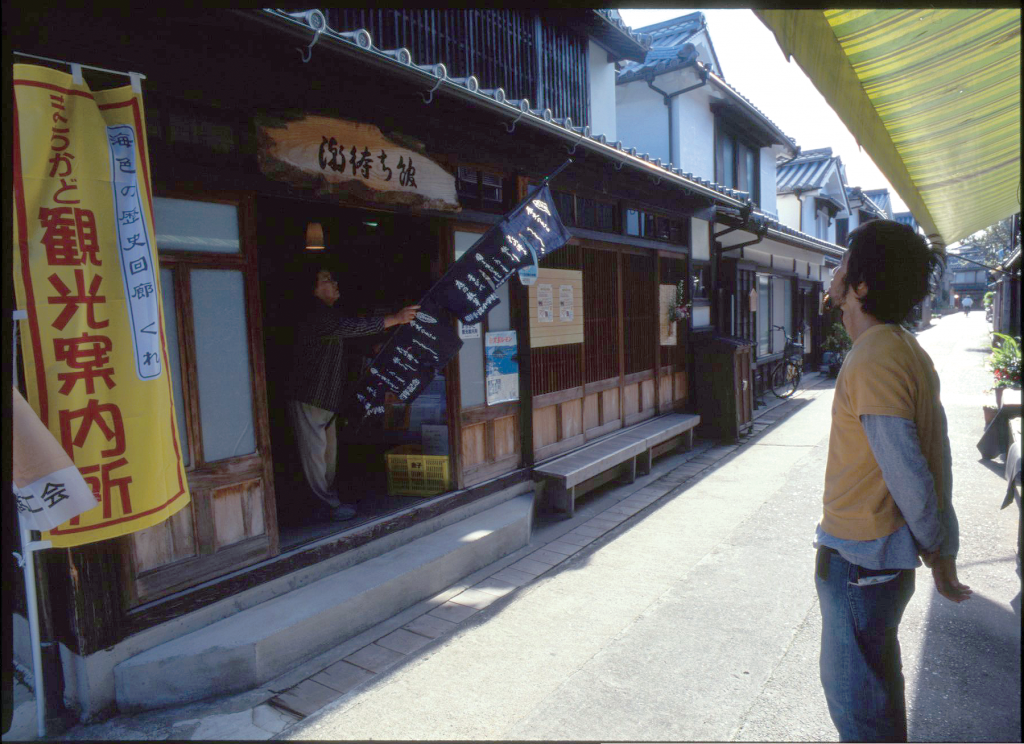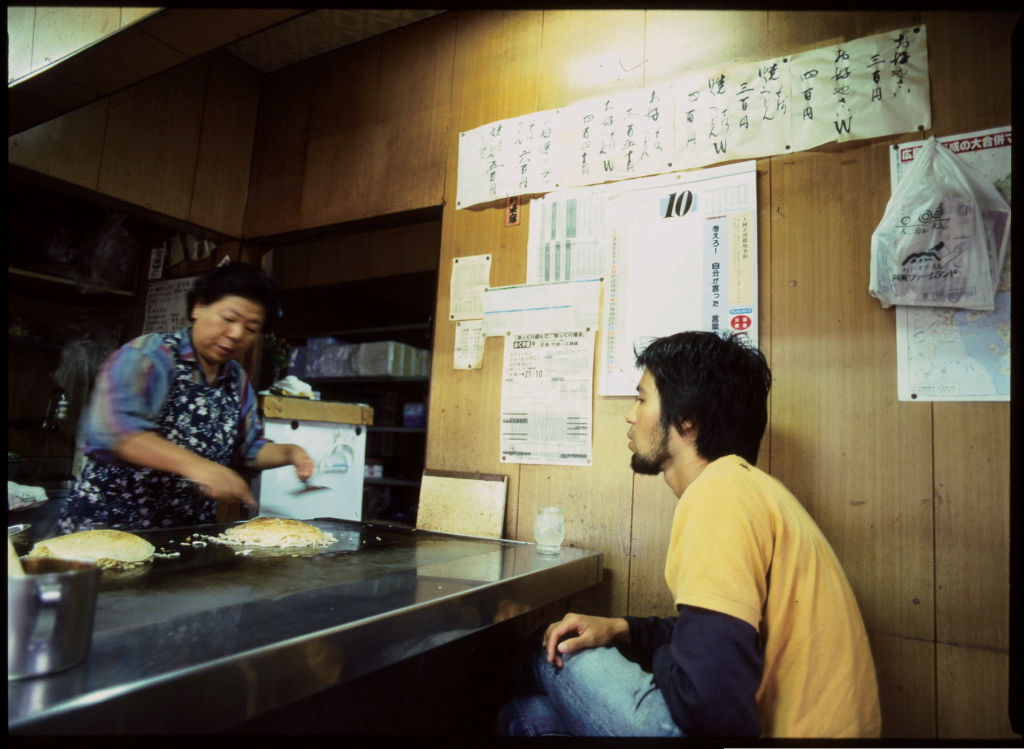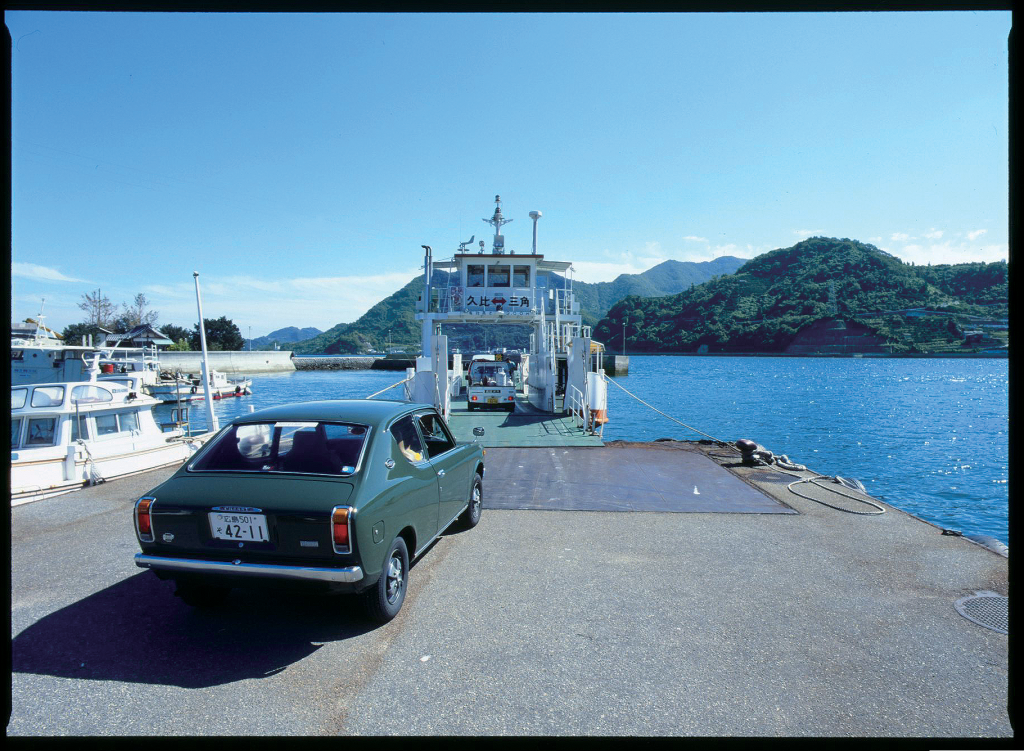Why do we travel? A restaurant on Osakishimo-jima helped to answer that question.
To begin, this column is not designed to highlight “recommended spots.” Maybe it’s me, but it seems most tourist information centers push places no one would ever recommend. I suppose you could say this column is more like a “non-tourist information center.”

I was leafing through some pages at the local book store in Jimbocho and came across something interesting in Shotaro Ikenami’s Otokonosakuho. “You don’t fully understand ‘you’ until you judge yourself by looking at the faces of strangers,” he says. Therefore traveling is a necessity. That is to say, maybe you’re eating at a restaurant in some unknown town and think to yourself, “That old lady doesn’t seem to like me.” That can be an important revelation.
The other day I traveled to Osakishimo-jima Island in the Seto Inland Sea near Hiroshima to write an article for BE-PAL magazine. An area on the island called Mitarai was famous in the Edo period as a port city, evident by the traces of a red light district and old clock shops. The town has managed to preserve its old-time feel and there are hardly any tourists.
In the town of Kubi I poked my head into a small okonomiyaki restaurant and asked the tightly permed old lady if she’s open for business. With a bothered look she picked herself up, started the griddle and drew out a circle of batter. On went the lard, cabbage and pork ribs, followed by noodles and an egg. This mountain of food was somehow flattened to a manageable size.
As I scarfed down the okonomiyaki, I was treated to tales from times long ago.

“This restaurant hasn’t changed a lick in 30 years,” she said. The old woman is originally from the Mitarai area and came to Kubi three decades ago. She explained that styles of cooking for funerals even differ from town to town on this small island. For example, in Mitarai they heap natto, potatoes, kelp and hijiki on plates, but in Kubi they trend more toward cooking udon noodles in big stone pots.
Two separate cultures existing on the same island, and she crossed over the border to 30 years ago. Maybe that’s why she seems so sharp. It’s time to settle up the bill. The words catch me off guard.
“I suppose you’ll be needing a receipt? Who do you want that made out to?” she asked.
Apparently she saw right through my disguise. When word got out I was writing for a magazine, the old woman’s husband who was sitting out back started pulling out half-sheets of poems written in sumi ink and chattering about his work.
When I’m out traveling the countryside and backwoods of Japan, I’m not thinking, “Oh, how lovely the simple life is,” or “The people are so warm-hearted.” I only think, “Wow, this is different.” Traveling helps me realize how to enjoy the here and now.





